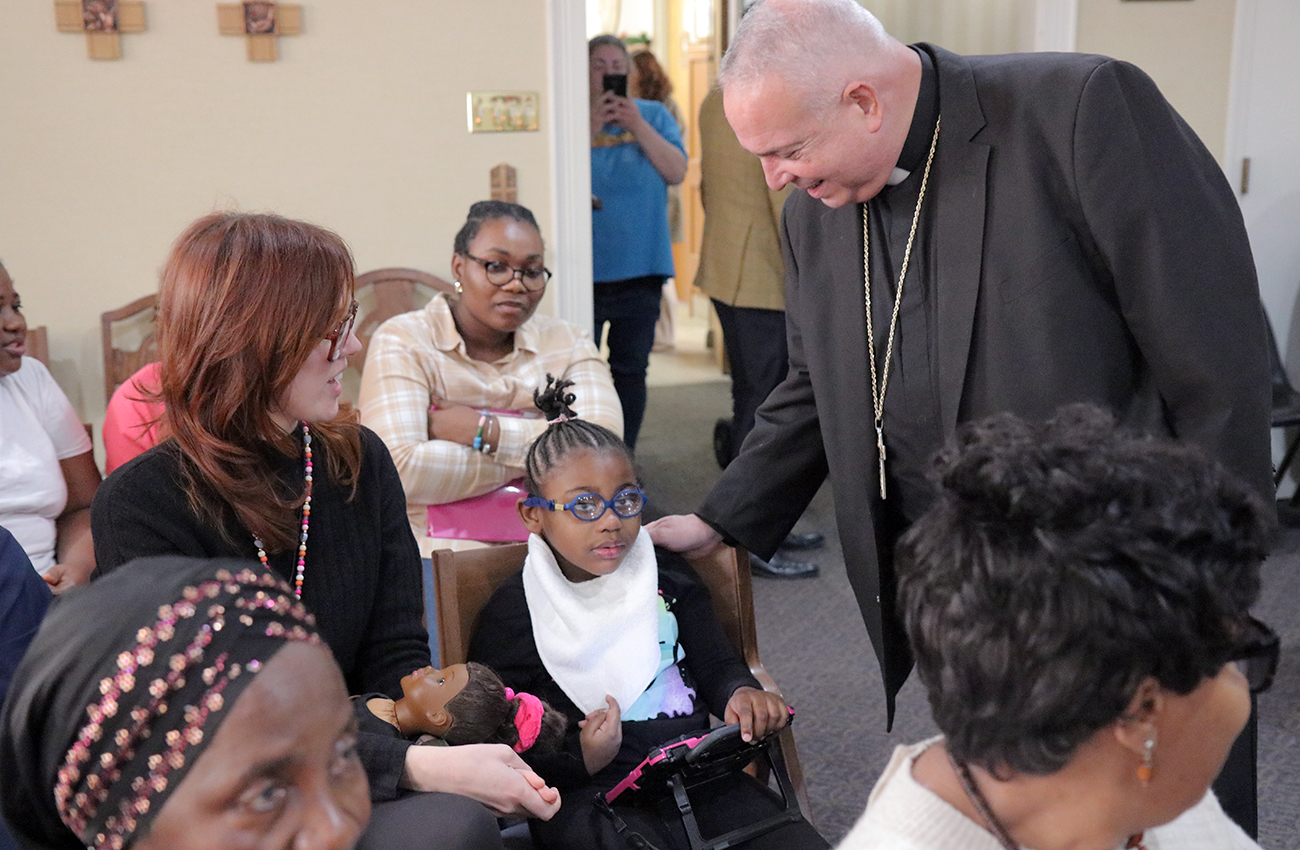As a young Catholic school student, Kimberly Cowley was moved by the Catholic teaching “that Jesus means for us to really care for and focus on advocating for those who society has overlooked,” she says.
“That definitely inspired me to consider things like dignity and integrity when I’m working with anyone with intellectual and physical disabilities,” says Cowley, who has dedicated the past several years of her career to working as a Catholic Charities of Philadelphia family case worker at St. Edmond’s Home for Children in Bryn Mawr.
She remembers one resilient resident, a young teenage boy who moved into St. Edmond’s around the time she first started working there. He didn’t have any family support, and he had experienced a failed adoption.
“Unfortunately, he had several traumatic events in his childhood,” Cowley said. “However, you would never know that by looking at him because he was as happy as can be.”
Cowley spent much time with the teenager and worked on his behalf, meeting with his advocates, and adoption recruiters in hopes of finding a family for him.
Then, a family experienced in helping people with disabilities came forward to adopt him. They already knew how to adapt their home and how to get all the proper equipment for him to live comfortably.
“His life is changed forever,” she said. “It took an army of advocates to work together to make it happen. It did, and it was an incredibly rewarding experience. I’m happy to know he’s out there thriving.”
St. Edmond’s Home for Children – founded in 1916 by Archbishop Edmond Prendergast – provides exceptional round-the-clock, holistic care from infancy through young adulthood for children and youth with intellectual and physical disabilities.

“We have some residents who’ve been here since they were babies. Now they’re teenagers, and that’s a wonderful thing to have that support for them and their families,” Cowley said.
A 2020 graduate of West Chester University with a bachelor’s degree in social work, Cowley says she was drawn to working at St. Edmond’s because of the “comprehensive care” provided by the staff and residents have the opportunity “to experience faith” in a home-like environment.
St. Edmond’s offers a broad spectrum of medical/nursing and therapeutic services – along with faith, love, and compassion – to assist residents in achieving their greatest intellectual, physical, and social potential.
Cowley notes that St. Edmond’s is open all day, every day of the year, celebrating holidays with residents, including Thanksgiving, Christmas, and Easter.
Some St. Edmond’s residents “don’t have family involvement or families that can be there for them, so our staff fortunately is,” she said.
As a family case worker, Cowley acts as a liaison in many ways for the St. Edmond’s residents. She works with their families, their schools, and collaborates with other social workers.
She additionally works with new residents to help them feel comfortable and assists young adult residents with finding suitable placements when they are ready to leave their home at St. Edmond’s.
The staff at St. Edmond’s also plans exciting events for residents, including inviting a Mummers String Band to perform at their recent Eagles pep rally.
Cowley says people may not usually see children in wheelchairs typically at an event like a pep rally, especially since not everywhere in our society is wheelchair accessible.
“So, we’re able to bring those things to them, and we have a wonderful migration therapist who also brings the kids into the community as much as possible,” she said.
When facing challenges with her work, Cowley says her “guiding force” is reminding herself to always do her best for the children, even when it’s not convenient, because “they deserve that.”
If places like St. Edmond’s didn’t exist, Cowley says many children with intellectual and developmental disabilities would have no place to call home.
She expects that these children would be admitted to hospitals long-term, or they’d have to move to a specialized foster home, “which are few and far between.” Both options would have negative impacts on the children’s well-being, she says.
St. Edmond’s is also blessed to be located nearby many specialized schools that residents can attend, as well as pediatric hospitals offering crucial services.
“We live in an able-bodied world, and it’s not easy to have a disability nor is it easy to raise a child with disabilities,” says Cowley, reflecting on her work at St. Edmond’s Home.
“The joy and humility I see in people with special needs, it’s life changing,” she says. “It’s taught me to appreciate the things that matter most in life. The kids have shown me that any amount of progress is worth celebrating, and for that, I’m eternally grateful.”
***
This piece was previously published in Catholic Charities of Philadelphia’s Annual Report. View the full report here.



Share this story